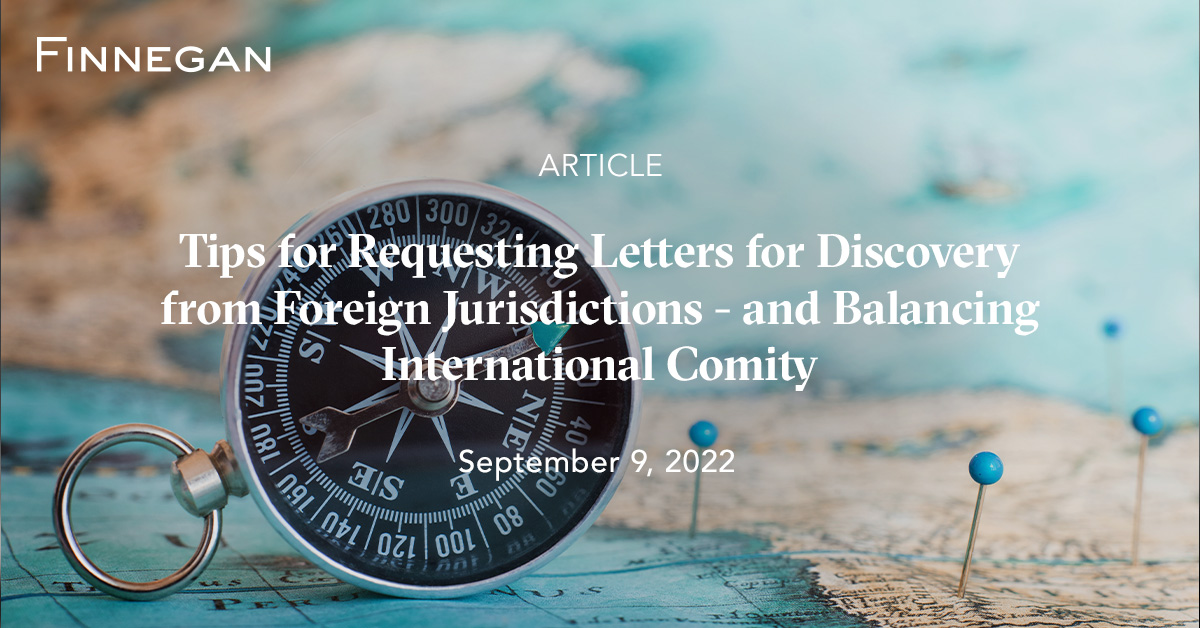Common Obstacles Faced When Implementing Letters Rogatory Requests
Common Obstacles Faced When Implementing Letters Rogatory Requests
Blog Article
The Role of Letters Rogatory in International Law: Secret Insights
Letters rogatory offer as a critical tool in worldwide law, helping with cross-border legal assistance by enabling jurisdictions to formally request evidence and activities from one an additional. What ramifications might these challenges have for future lawful process?
Meaning of Letters Rogatory
In the realm of global regulation, letters rogatory function as official demands issued by a court in one jurisdiction to seek help from a court in one more jurisdiction. Letters rogatory. These requests are particularly substantial in cross-border lawful proceedings, where the enforcement of a court's order or the celebration of proof might be restrained as a result of administrative restrictions

The process usually needs the requesting court to articulate the specific details or activity needed from the foreign court, sticking to the legal methods and conventions developed in between the territories involved. When provided, the letters rogatory are transferred via diplomatic channels, which might consist of embassies or consulates, to make sure that the demand is recognized and acted upon by the international court. Generally, letters rogatory exemplify the participating framework necessary for reliable worldwide lawful processes.
Historic Context
Although the technique of letters rogatory has ancient origins, its formalization within the structure of global law arised significantly in the 20th century. Historically, such requests for judicial help were used in various lawful customs, including Roman legislation, where they helped with cross-border collaboration in legal matters. The principle got renewed focus with the increase of globalization and the enhancing complexity of international legal communications.
The mid-20th century saw the facility of treaties and conventions that looked for to standardize the process of letters rogatory. Significantly, the 1970 Hague Convention on the Taking of Proof Abroad in Industrial or civil Matters gave an organized strategy, enhancing the efficiency of these requests - Letters rogatory. This period marked a shift from casual plans to an extra organized structure, which addressed the challenges presented by varying nationwide legal systems
As states came to be much more interdependent, the need for efficient devices to gather proof across borders emerged, strengthening the role of letters rogatory in promoting global collaboration. Today, they stay an important instrument for obtaining proof and making sure that justice transcends nationwide boundaries, mirroring the evolving nature of international regulation in action to worldwide challenges.
Refine of Issuing Demands
The procedure of providing letters rogatory normally includes a number of essential actions created to make sure that ask for judicial assistance are clear, specific, and compliant with both domestic and global lawful criteria. A celebration seeking aid has to prepare a formal request that describes the essential realities of the situation, the relief sought, and the specific evidence or testament called for. This record should be crafted with accuracy to fulfill the lawful demands of the jurisdiction in which it will certainly be sent.
Adhering to the preparation of the request, it is submitted to the ideal authority, often a court or an assigned governmental agency. This authority assesses the demand to ensure it complies with legal criteria and step-by-step standards. As soon as approved, the demand is transferred to the foreign territory through diplomatic channels.
Upon receipt, the international court reviews the demand's conformity with its local legislations and techniques (Letters rogatory). If accepted, it proceeds to execute the demand, which may entail the issuance of subpoenas or the collection of proof. Throughout this procedure, preserving clear communication in between the asking for and getting jurisdictions is crucial to make sure successful participation and the satisfaction of the request
Difficulties and Limitations
Obstacles and restrictions regularly emerge in the process of implementing letters rogatory, commonly coming from differing legal systems and procedures in between territories. One considerable obstacle is the varying standards of admissibility for proof, which can result in problems in the approval of documents asked for with letters rogatory. Furthermore, the absence of harmony in legal terms and meanings can produce misunderstandings, making complex interaction in between courts in different countries.
Furthermore, delays prevail as a result of bureaucratic processes, as the demand might need to pass with several layers of lawful authorities prior to it is met. In some instances, the requested jurisdiction may do not have the required sources or readiness to comply, even more hindering the procedure. Language obstacles additionally add to difficulties, as precise translation of legal papers is vital for making sure that the intended message is shared without distortion.
Last but not least, sovereignty worries may develop, as some states are reluctant to follow requests that they perceive as infringing upon their lawful autonomy. These challenges highlight the complexities fundamental in using letters rogatory, demanding greater harmonization and teamwork amongst worldwide lawful systems to improve their effectiveness.

Impact on International Teamwork
Acknowledging the significance of letters rogatory in fostering international teamwork is important, as these requests promote cross-border lawful help and advertise collaborative efforts in criminal and civil matters. By making it possible for one territory to officially request help from one more, letters rogatory produce an organized lawful framework that enhances the effectiveness of global communication in between judicial authorities.
The use of letters rogatory helps to establish common trust and respect amongst nations, which is crucial in an increasingly interconnected globe. They function helpful site as a mechanism not only for gathering evidence but additionally for making certain that lawful processes are maintained throughout borders. This is particularly vital in combating transnational criminal activity, where the failure to safeguard cooperation can weaken justice.
Furthermore, the dependence on letters rogatory can streamline intricate legal procedures, reducing hold-ups and uncertainties in global examinations. The procedural safeguards fundamental in this procedure contribute to the security of individual civil liberties while promoting cooperation amongst states. Ultimately, the influence of letters rogatory on global teamwork underscores their duty as vital tools in the promo of justice, cultivating a joint spirit that transcends legal systems and nationwide limits.
Verdict
In final thought, letters rogatory offer as an important instrument in worldwide regulation, helping with cross-border lawful help and collaboration. The ongoing advancement of these devices is vital for enhancing the performance of global legal processes, ultimately fostering more powerful partnership in both criminal and civil issues throughout jurisdictions.
Letters rogatory offer as an essential tool in worldwide regulation, helping with cross-border legal support by allowing jurisdictions to formally ask for evidence and actions from one an additional.The process generally requires the requesting court to articulate the certain info or activity required from the international court, adhering to the legal procedures and conventions established in between the territories entailed. Historically, such demands useful site for judicial assistance were used in numerous lawful customs, consisting of Roman legislation, where they promoted cross-border teamwork in lawful issues.The process of releasing letters rogatory typically involves a number of crucial actions developed to ensure that requests for judicial support are clear, particular, and compliant with the original source both domestic and global legal criteria.Moreover, delays are usual due to bureaucratic processes, as the request might require to pass through multiple layers of lawful authorities prior to it is met.
Report this page